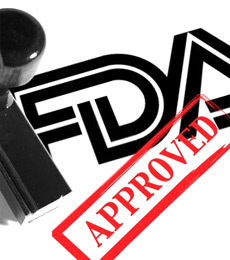Posted By Hope Alfaro On July 20, 2016
The FDA issues Guidelines Covering EHR Data in Clinical Trials

As Electronic Health Records (EHRs) become more prolific, their use and value in ongoing and new clinical trials becomes more important and also a point of confusion and contention on data quality and privacy concerns in the industry. A new document released by the US Food and Drug Administration is intended as guidance for principle investigators, research organizations, IRBs, and others on the use of EHR and patient data in FDA-regulated clinical trials and investigations.
The 12-page guidance is meant to facilitate the use of EHR data in clinical trials and promote interoperability of EHRs and other electronic systems that might be supporting investigations. The FDA recognizes the opportunity that EHRs provide to improve patient safety, increase clinical trial efficiency, and combine data from a range of sources.
The document also makes suggestions to protect data integrity including the use of EHRs certified by ONC. “When EHRs are used as a source of data in clinical investigations, sponsors should ensure that the EHRs they use and the processes and policies for their use provide electronic source data that are attributable, legible, contemporaneous, original, and accurate (ALCOA),” the draft says.
Not all EHRs are created equal: older, early EHRs were designed to put data in a database and were not designed to get outcome data. While these models worked well for early adopters of EHRs, they are not ideal for more advanced work including clinical trials. More modern apps & cloud-based EHRs are optimal for impacting the outcomes of clinical trials and receiving the best data.
The ability of EHR and other electronic systems to exchange data is an important priority for FDA, which encourages sponsors and clinical investigators to work with the entities that control the EHRs to use interoperable systems. Having an EHR that is willing to work directly with you to accommodate data transfer can be key to maintaining data integrity and improving the quality of investigations.
EHRs may be interoperable with EDC systems in myriad ways, FDA says, including via the electronic transmission of relevant EHR data to an EDC system.
This guidance expands on two previous guidance documents: “Computerized Systems Used in Clinical Investigations,” and “Electronic Source Data in Clinical Investigations,” and FDA says it does not apply to the use of EHR data in postmarket observational pharmacoepidemiologic studies designed to assess the risk associated with a drug exposure or designed to test pre-specified hypotheses for such studies, or when used as a recruitment tool for clinical investigations.
For more information on the FDA’s new guidance for the use of EHR data in clinical trials, visit the FDA Website